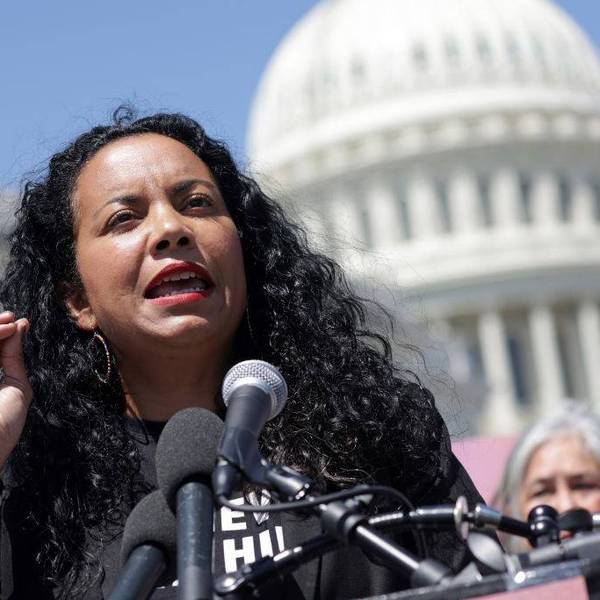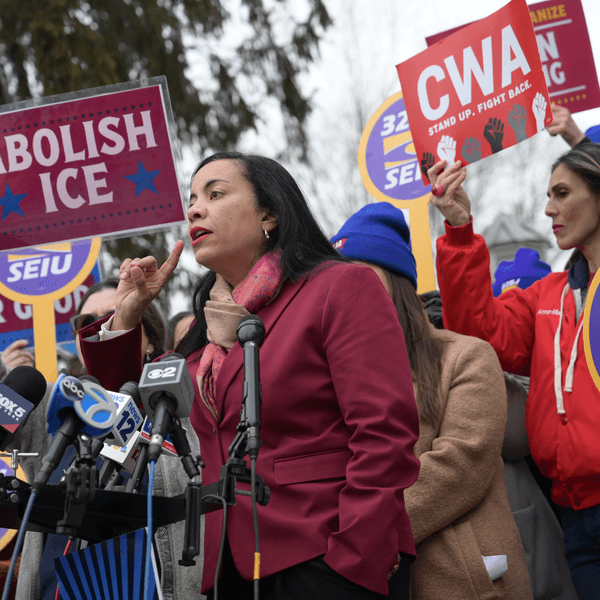In what is being claimed as a victory for "anti-imperialists," President Evo Morales on Sunday was elected to his third term as Bolivia's president.
Morales, who in 2006 became the country's first indigenous leader, won a landslide 61 percent of the vote, according to exit polling. His closest rival, businessman Samuel Doria Medina, had 24 percent.
"This was a debate on two models: nationalization or privatization. Nationalization won with more than 60 percent (support)," the Socialist leader told the thousands who gathered outside the presidential palace Sunday evening. Morales dedicated his win to leftist leaders Fidel Castro of Cuba and Hugo Chavez, Venezuela's late president.
"This win is a triumph for anti-imperialists and anti-colonialists," Morales declared.
Under his leadership, the number of Bolivians living in extreme poverty has fallen from more than a third of the population to one in five since 2006. Further, his policies have provided economic growth averaging above 5 percent a year.
Polling also suggested that the former coca grower's Movement Toward Socialism party would also maintain power in both the lower and upper houses in Congress. According to analysis, this will allow for the leader to keep pursuing his agenda of "indigenous socialism," under which he has nationalized major industries such as oil and gas to build new roads and schools and finance welfare programs across the state.



